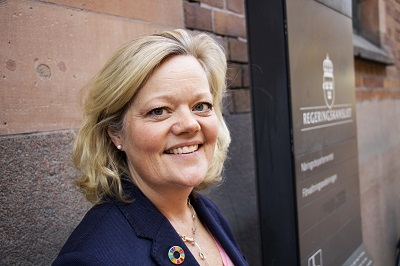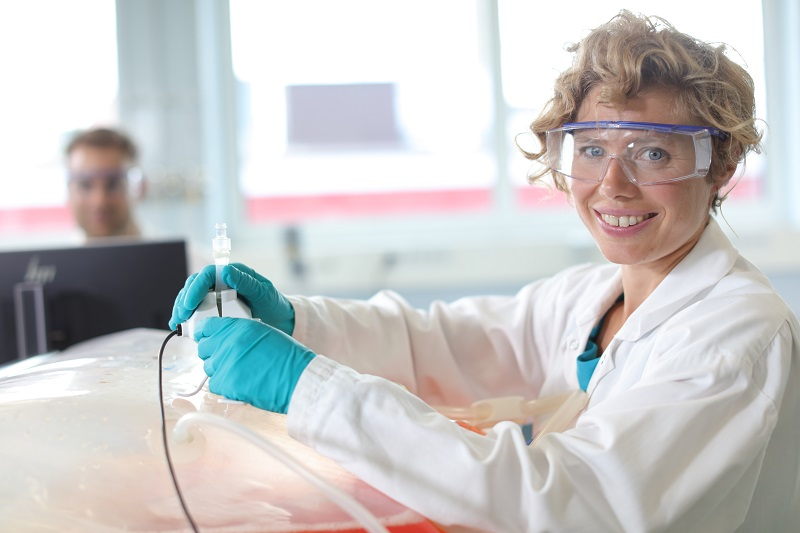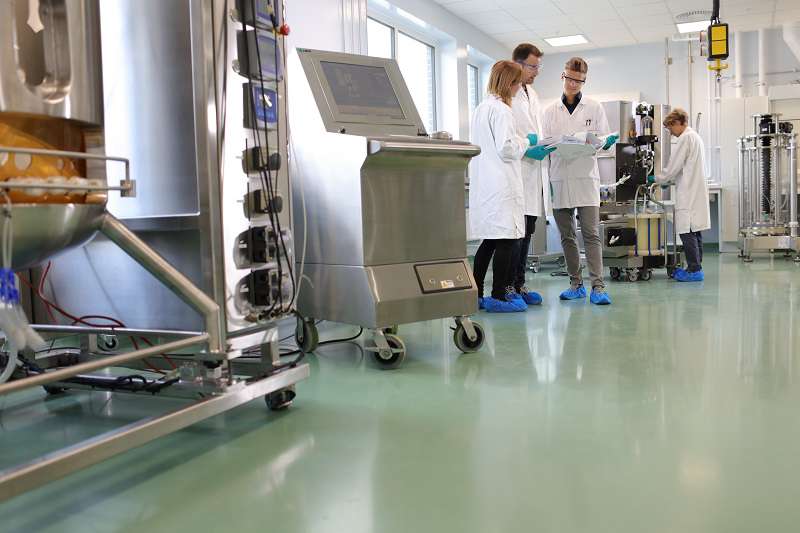Improved production of biologics: what Sweden and Cytiva are doing to lead the way
The Testa Center opens in Uppsala as a groundbreaking collaboration between the government and Cytiva to improve the future of biological medicines.

Something exceptional is taking place in Uppsala, Sweden. A groundbreaking collaboration is poking holes in the rigid walls between industry, academia, and the public sector. As a part of Sweden’s focus on life sciences, the government and Cytiva are set out to improve the future of biological medicines.
“As many other countries, Sweden is facing new health challenges,” says Jenni Nordborg, PhD, National Coordinator and Director at the Office for Life Sciences, Government Offices of Sweden. “We need new ways to tackle challenges like resistance to antibiotics and a growing ageing population. That’s one of the reasons we’re investing in the life science area.”
Sweden is not alone in this approach. The global competition within the sector is tough. Countries like the UK has set the tone for a great national focus on life sciences.
With a world-leading healthcare, a highly educated population, and unique access to data through their national registers Sweden is in a great position to do well. But, to meet the global competition and the health challenges it faces, the country also needs completely new ways of working.
One example of new approaches is the new Testa Center in Uppsala. It is a pioneering collaboration between the Swedish Government and GE. The center provides an authentic testbed for academic research groups, small businesses, and major industry.
“These players now have a common platform for testing and verifying new processes and tools for industrial production of biologicals,” says Lotta Ljungqvist, President & CEO, Cytiva Nordic and CEO, Testa Center. “We supply the expertise and equipment to help them reach their goal.”
The Swedish government has provided substantial funding for the center. They have realized that it is crucial to invest in new infrastructure that connects competence from different sectors.
“The Testa Center is a great example of this. That GE, one of the world-leading organizations in life sciences, embrace an open platform like this is exceptional,” says Jenni Nordborg. “I hope this center creates deeper collaborations and even new bounds between people who normally don’t interact closely, but who can really benefit from each other’s expertise.”
Jenni Nordborg also describes two further changes healthcare in general is going through. Firstly, it is moving towards personalized care, tailored to the individual. This is also reflected in the biopharma industry where more precise treatments are being created. Secondly, the way we are providing and performing healthcare is rapidly transforming due to the digital paradigm shift.
Sweden’s unique national population registers is a perfect fit for a data-driven world. However, this data is only useful if there are efficient ways to handle it in place. Speed and data management are some of the big hurdles the country is facing.
Sweden is investing in the life science area for this very reason—to get over these hurdles and reach the next generation’s export success. The country is looking for new ways to make use of existing competence within the public and private sector as well as academia and patients.
“Biologics is a major part of present and future medicine. And an open platform like the Testa Center shows that Sweden is in the forefront of this,” Jenni Nordborg says. “Ideas, expertise, and creativity can now flow between academia, industry, and governmental institutions for a faster and better future healthcare.”
For more information on The Testa Center click here: https://testacenter.com/

